LOOKING FOR ALASKA Season 1: An Almost Perfect Adaptation Of A Fan Favorite
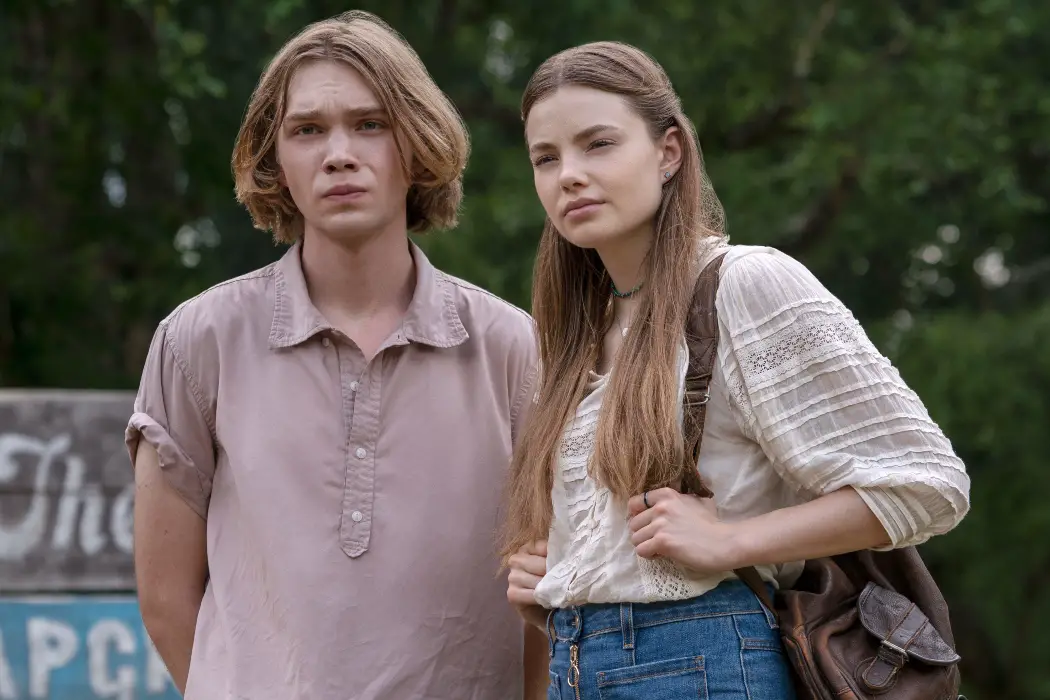
Stephanie Archer is 39 year old film fanatic living in…
The works of John Green have captured the hearts and tears of all those who have dared enter his world, allowing for attachment and catharsis to render readers helpless to the tears that inevitably fall. There is a deeply rich story and care for each character he brings to life, each new book delivering different experiences and emotions. Yet, where readers have fallen for his works time after time, it is his first novel that resonates the strongest – Looking for Alaska.
While a book that found instant success, Looking for Alaska struggled to find its way to screen. While many of Green’s books have come to life, Alaska has struggled to find its chance. Thankfully, the miniseries medium coupled with the power of streaming has finally lended the novel the opportunity it has longed for since its release.
Looking For Alaska, with all its bumps in the road much like its hurricane epicenter Alaska, is an adaption with heart, an endeavor delivered to fans with the deepest understanding of the text and the love that made it a success to begin with. While not without its weak points, this miniseries adaptation allowed for world building, a broadening of the text and perspective. Its increased breadth allows for further engagement, exploration and understanding of these characters and their story fans have held dear for so long.
Looking For Alaska
There is the before and then there is the after. There is a moment when life changes – a moment. Decisions have their consequence, every ripple of our lives extending outwardly, crashing into the ripples of others while missing others completely. A moment.
Having decided to follow his fathers legacy and attend Culver Creek Boarding School, Miles, played by Charlie Plummer, (who for the rest of this review will be referred to as Pudge) has decided to follow in the steps of Francois Rabelais‘ last words, to go off and find his “great perhaps”. As he leaves his parents and world behind, he enters a new one filled with pranks, backstabbing and love. While he treads lightly, brought into the group of misfits by his roommate the Colonel (Denny Love), Pudge falls deep into life at Culver Creek.
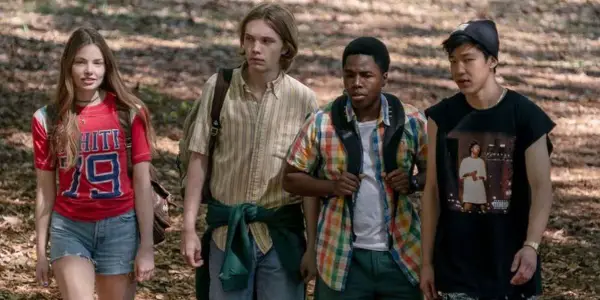
As his new group of friends fights back against the Weekday Warriors (those students who return home for the weekends) over who ratted out whom, Pudge’s “great perhaps” becomes a revelation that seems will never have its fruition. He falls for unavailable and eccentric Alaska, played by Kristine Froseth, (whose feeling seems to bend and flow), befriends his roommate The Colonel who fondly dubs him Pudge (it’s ironic), dodges The Eagle (the school’s principal played by Timothy Simons), learns you can’t catch the Fox and that there is more to a person than what is clearly seen.
Looking for Alaska cuts deep, reaching into the depth of catharsis, bring a flood of emotion in its wake – and the adaptation was no different.
A Rollercoaster Ride to Success
Each of the eight episodes are structured much like the book, the episodes counting down the days before, eventually leading to the after. It was a brilliant idea to end each episode with the countdown, a heightening for both viewers familiar with the story and those who are not. Those who are familiar will find their senses heightened, knowing what is coming and how far away they truly are. Those unfamiliar will find their senses also heightened, though the ambiguity of where they are going adding to the edge-of-your-seat feeling and need to get to the next episode, to get to the end – to find out the truth. This is truly a binge worthy show if there ever was one.
While the pilot episode is a solid launchpad, the series finds itself stumbling at times, the additives and world building feeling at times more like filler than substantial narrative. There were times I found myself ready to move back to the original parts of the book, this unnecessary filler dragging the episode and the overarching feeling of the series. However, there were times when the additives enriched the story, as well as the characters they involved. One of the best additions was the broader story involving the Dr. Hyde (Ron Cephas Jones). His life with his partner and the things he had lost along the way informative for viewers and enriching the characters around him, creating parallels that branch off into comparisons for life later on. Those who have read the book will find in these moments the adaptation to be the most fulfilling.
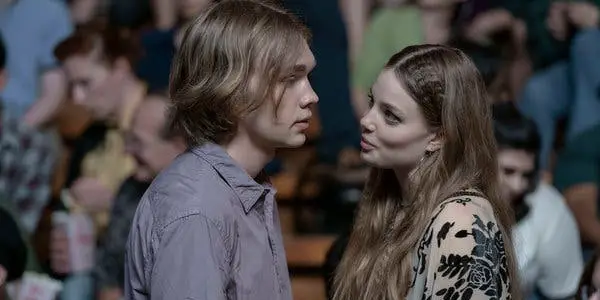
Beyond the episodes’ structures and increased world building, the soundtrack for the series is incredible. The covers for Franz Ferdinand’s “Take Me Out” (here by Young Summer) and Death Cab for Cutie‘s “I Will Follow You Into The Dark” (here by Miya Folick) will be instant additions to your music library. The integral part they play in their respective scenes heighten so much of what viewers are seeing and feeling. Beyond the soundtrack, the score also brought its own level of feels to the table. I would be lying if I said both the soundtrack and the score hadn’t made it to my library (and I wasn’t listening to both as I wrote this review). There is a peacefulness, a quiet undertone the score is able to capture, preventing the series from becoming a one note induction into binging history.
Looking for Alaska has more than its mostly successful adaptation and music to boast about. It’s cast truly committed to their roles, the importance of that commitment to fans and each character delivered. Charlie Plummer as Miles “ Pudge” Halter (whose image at times brings call backs the deep thinking look of Cillian Murphy) turns in an outstanding performance, though predictable at first for his previous roles. His best work comes in the show’s final episodes. There is a raw force that breaks beyond the typical awkwardness many would come to expect in his performance, a raw force that drives each emotion home. He transforms as a performer here, much like his character, breaking away from the awkwardness and coming into his own.
Denny Love as The Colonel and Jay Lee as Takumi each brought their respective characters to fruition with precision, Love fully encapsulating the Colonel’s anger, frustration, life and teenage struggles, while Lee brings the cool exterior so clearly understood from the text. Kristine Froseth is Alaska. Watching her on screen, I felt myself entranced by her, drawn to her. Her portrayal of Alaska is endearing and broken in every perfect way possible. For those who have fallen in love with the characters when the book was first released, and those who have fallen in love in the time since, you won’t disappointed with the care and execution all were able to deliver here.
From Page to Screen
As with any adaptation, there were certainly changes between what was written and what was inevitable shown. While staying very close to the text, there were definitely some drastic changes that immediately stood out. While many fit, others were awkward, seemingly not as successful as they had been in the book. While there are restraints on the time structure and episodic construction, much of this can most likely be attributed to the miniseries breaking away from strictly Pudge’s perspective.
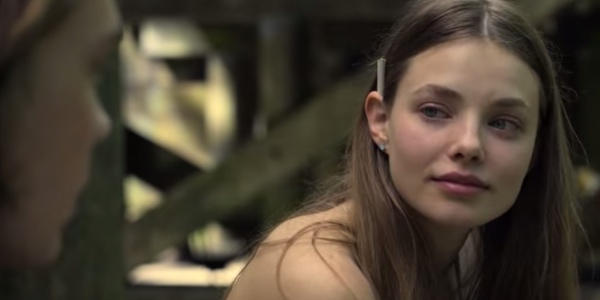
One of the biggest differences I noticed was during the Weekday Warrior prank. While it was intended for all to be included, Pudge is initially left out of the prank (and not just the planning). He is a side thought, his inclusion a last minute additive. Surrounding these events, a winter dance is included giving Lara (Sofia Vassilieva) and Pudge more of an opportunity to get to know one another and set up relationships between others.
Extending beyond Pudge’s inclusion, there is also the actual prank itself. Where in the book it is progress reports sent home to Weekday Warrior parents, here it is now a submitted letter about why these particular students would be perfect candidates for admittance to Duke University. Calling back to an earlier diarrhea incident earlier in the series (another addition that goes beyond the text), they make the perfect case for why Dookie is perfect for Duke. The consequences of this prank are shown in the miniseries, whereas in the book they seemingly are never caught – consequences that alter the connection to the after. While everything wraps up neatly as originally intended, these changes may throw a few devoted fans of the book into a tailspin.
Do not fret though literary fans, there are some changes, beyond the world expansion, that did work for the film, and in my opinion, actually hit harder and were more successful than originally written. One of these instances is within the final episode. While I do not want to spoil anything for those who have not experiences Alaska, the ending is slightly altered, its perfect encapsulation of character and narrative finding its crescendo of mischief and honor. Any mishaps I may have held onto strongly were quickly washed away here as everything found its end in seamless satisfaction.
A Change of Perspective
Looking for Alaska is written from Pudge’s perspective, yet what the new series allows is for a wider breadth of perspectives. We are allowed to see the world through others’ eyes, including: The Eagle, The Colonel, Takumi, Alaska and Dr. Hyde. Pudge is not a requirement in every scene, each of these characters having enough depth to stand on their own, and here it executes with precision, the screen-time for all filled to almost perfection (even if at times it feels like filler). We get to know these characters as they see themselves, the world and each other.
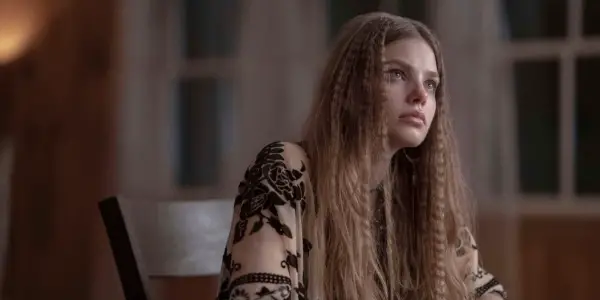
The eight-episode structure also allows not only for a break from just Pudge’s perspective but also the male gaze. Our perception of Alaska is no longer strictly confined to how Pudge sees her, how he understands her. Rather, we are given a chance to see how others see her, how she sees herself, and how she interacts – and most importantly we are able to see her. The series boasts an almost 50/50 female to male director ratio, one that I feel was a strength behind the camera bringing this different point of view front and center, without pandering to an audience. While it does make Alaska a bit less of a mystery, it only heightens her magnetic and entrancing pull as a character.
Mental Illness
While this has been a long analysis of a young adult series, there was one more effective element of the eight-part miniseries that needs to be acknowledged – its perception of mental illness. In the book, there is a questionability, a mystery. Mental illness is shown as much as it is hidden, understood as much as it is forgotten.
What the series does is give a full encompassing view. While Pudge’s perspective limited the information seen and heard, Hulu’s Looking for Alaska gives a deeper viewpoint and understanding of some of the aspects of depression, bipolar disorder and mental illness in general. Having raced to read the book before finishing the series, the depiction here also shows the worlds changed attitude towards mental illness. We see how it was vs today; we have more information, literature and information to help those who are suffering. We are not only more equipped to help and identify, but also more willing. The social judgment of those who suffer has begun to wan, replaced with understanding and a need to help – to discuss.
Where Netflix’s 13 Reasons Why broke through barriers loud and proud, Looking for Alaska too builds from a text advancing our exposure, showing us how far we have come and how much further we need to go.
Conclusion
Form the moment I screened the opening episode of Looking for Alaska, I was enthralled. While it does suffer from a few hiccups along the way, it continually finds its strength in its source material, its characters, cast and crew and a devotion to story that millions have fallen in love with.
Have you seen Looking for Alaska? What did you think? What are your favorite adaptations? Let us know in the comments below!
Looking for Alaska is now available on Hulu.
Does content like this matter to you?
Become a Member and support film journalism. Unlock access to all of Film Inquiry`s great articles. Join a community of like-minded readers who are passionate about cinema - get access to our private members Network, give back to independent filmmakers, and more.













